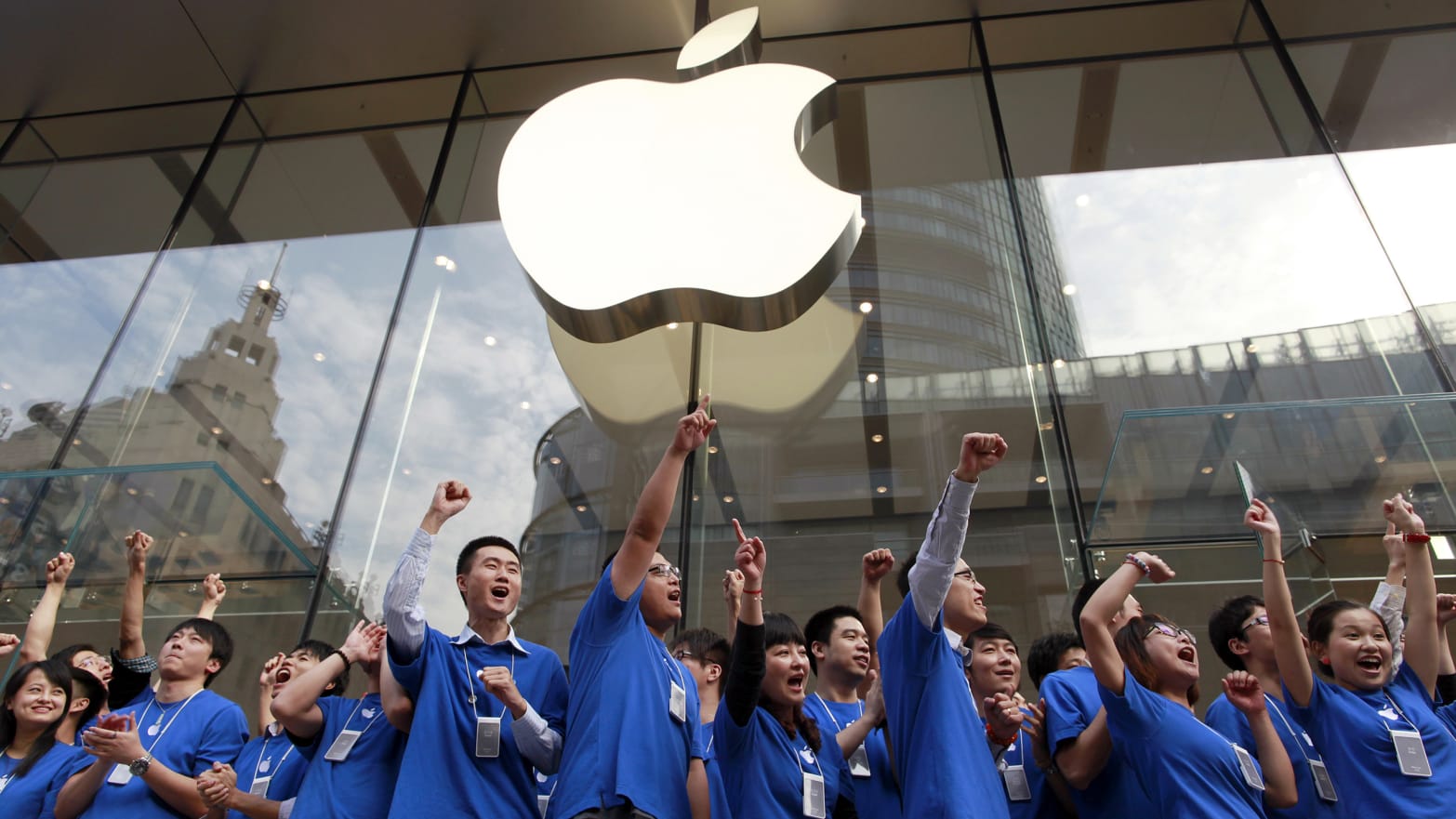The one thing that people often underestimate about China is how unique it. Foreign firms often think that what helped them be successful in the US or in other foreign markets will also help them be successful in China. I think Uber China is a perfect example for that (see China Musings #8). The list of foreign firms that failed in China grows by the day, so the few ones that enter and succeed in China, deserve a closer look.
Apple is one of such companies. Apple is a popular brand in China, and their growth story here has been remarkable. Yet with a market that is changing so rapidly, even a company like Apple will inevitable run into issues. After talking to China observers, reading articles, and doing some more research on my own, I wanted to share some observations on where Apple is headed in China.
Apple recently issued a revenue warning. Certainly not the first one (last such warning was in 2002) and also not the first time that there were issues with iPhone sales (there were issues around the iPhone 5 and 6S cycles), but this one was different given the role that Greater China played – especially with regards to iPhone sales. From Tim Cook’s letter
While we anticipated some challenges in key emerging markets, we did not foresee the magnitude of the economic deceleration, particularly in Greater China. In fact, most of our revenue shortfall to our guidance, and over 100 percent of our year-over-year worldwide revenue decline, occurred in Greater China across iPhone, Mac and iPad…
Lower than anticipated iPhone revenue, primarily in Greater China, accounts for all of our revenue shortfall to our guidance and for much more than our entire year-over-year revenue decline. In fact, categories outside of iPhone (Services, Mac, iPad, Wearables/Home/Accessories) combined to grow almost 19 percent year-over-year.
This, however, isn’t the first time when Apple started having issues in China with regards to iPhone sales. Back in 2017 the company’s reports indicated that Greater China might be an issue for Apple going forward (all regions were up, except for China).
Let’s try to understand why that is.
Apple’s advantage around the world has always been the approach of “hardware differentiated by software.” This allowed Apple to sell the hardware with a margin much greater than competitors who run a commodity operating system. That “software differentiation” is not just because of the operating system being subjectively “better,” but also because an operating system can function as a “lock-in” once someone starts using it. If you want iOS, Apple has a “monopoly” on it. I’m a good example for that. What I value most is the camera, but by now there are plenty of competitors with better cameras, and I still haven’t switched away. I’m used to iOS and I don’t feel like changing.
In China, Apple has an additional advantage which is the country’s inequality and the very strong consumer aspirations. Apple products, especially the iPhone, remain highly popular. It’s something that someone would put on the table to show others they can afford it. I would argue that in China it’s mostly Apple’s brand that is the main selling point. Yet while the brand factor matters a lot, it’s not the only thing that matters in China.
Unlike the rest of the world, in China, the most important layer of the smartphone stack is not the phone’s phone’s operating system. But it’s actually an App, namely WeChat with over a billion DAUs. There is no aspects of Chinese life that is not conducted through that single apple: messaging, mobile payment, video calls, hailing a cab, social media, investing money, buying cinema/flight/rail tickets, switching insurance provider, games, accessing government resources, etc.
Looking outside of China, you won’t find anything comparable. For lack of better words, WeChat becomes your phone. And considering how much of daily life is managed through one’s phone in China, WeChat becomes super powerful. Naturally, WeChat works the same on iOS as it does on Android. Which consequently means that for the average Apple user, the switching cost away fro the iPhone is fairly low. This shows in the retention rate of iPhone users which is about 50% for iPhone (back in 2016) compared to 80% in other markets.
In most parts of the world it’s hard to imagine seeing an iPhone user upgrade to anything but another iPhone. It would mean a loss of user experience, too many apps to back-up/transfer/reinstall, or specifically for the US, too many contacts on iMessage to even entertain the idea of a phone switch.
It’s a whole different picture in China, where life is centered around WeChat, which runs on any operating system. That makes Apple simply another smartphone vendor, which is a tricky place to be at. As Apple’s “hardware differentiated by software” advantage erodes in China, what it continues to have is its brand advantage in a society that craves status and luxury. This remains an advantage, but it’s also one that Apple needs to re-earn with every release, which is a very high bar to clear.


